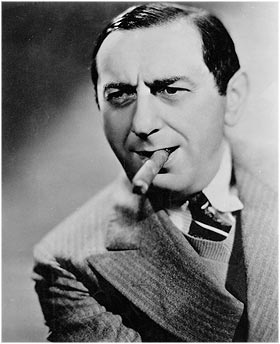51. Ernst Lubitsch
ERNST LUBITSCH
NINOTCHKA, SHOP AROUND THE CORNER, HEAVEN CAN WAIT, TROUBLE IN PARADISE
A German expatriate who fled the Nazi regime, Lubitsch had a flare for comedy unparalleled at his time. His movies were known for perfectly balancing tragedy and comedy, a talent that became known as “the Lubitsch touch.” For those who haven’t discovered him yet, Lubitsch will be a surprising delight for younger film enthusiasts.
See the full list HERE.































It was always my understanding that the Lubitsch touch had more to do with (subtle and not so subtle) sexual innuendo in his comedies. He’s not my favorite, but I’ve also never seen a Lubitsch I wouldn’t call good (with the possible exception of the flat retread Heaven Can Wait). I love the way he takes on class in everything from his silent German farces (The Oyster Princess) and melodramas (Madame Dubarry) up through the consumerist ’20s, the Depression, and beyond. And if you haven’t seen The Man I Killed, it’s easily his most singular work (which is not to say his best, just an utterly atypical Lubitsch), a tragedy about a Great War soldier coping with having killed someone in combat.
The Lubitsch Touch, as I see it, represented both what Brandon and Josh wrote, and so much more. It’s the way all the employees say “Mr. Matuschek!” in a sort of repetitive, atonal chant in The Shop Around the Corner. It’s the music that plays as Gaston ascends the stairs, or the orders he gives to the butler in the beginning, in Trouble in Paradise. It’s “So they call me Concentration Camp Ehrhardt!” in To Be or Not To Be.
It’s also the particular lightness with which Lubitsch and his characters glide through even the most dire of circumstances. Overwhelmingly sentimental, but never cheap. Heartfelt and uncaring. It’s absolutely the way sex is discussed in terms of robbery and insurance in Trouble in Paradise.
Needless to say, I adore Lubitsch. I really, desperately need to see his silents, though.